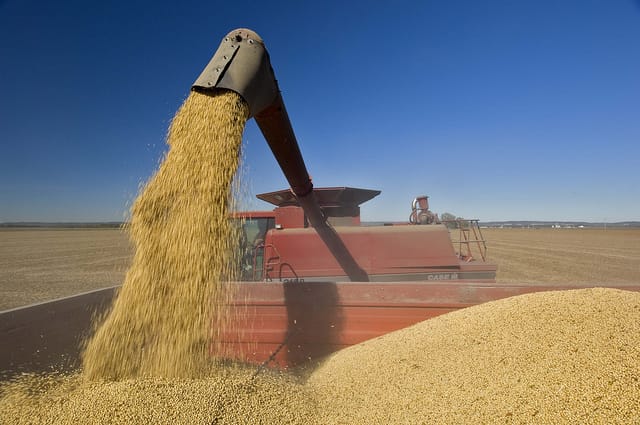Cornucopia’s Take: Cornucopia petitioned the National Organic Program for more rigorous certification, oversight, and testing of imports in July due to the lax enforcement we were then aware of at the U.S. border. Cornucopia has been digging into the import fraud issue for 10 years. USDA’s Office of Inspector General released their critical audit of USDA’s handling of organic imports this week.
Bogus ‘organic’ foods reach the U.S. because of lax enforcement at ports, inspectors say
The Washington Post
by Peter Whoriskey
 |
Bogus “organic” products may be reaching the United States because of lax enforcement at U.S. ports, according to a new audit by the U.S. Department of Agriculture’s Office of Inspector General, a finding that helps explain previous reports that millions of pounds of fraudulent “organic” corn and soybeans had reached American ports.
The USDA lacks procedures to check that a shipment meets organic standards, the report found.
The USDA “was unable to provide reasonable assurance that … required documents were reviewed at U.S. ports of entry to verify that imported agricultural products labeled as organic were from certified organic foreign farms,” according to the report released Monday. “The lack of controls at U.S. ports of entry increases the risk that nonorganic products may be imported as organic into the United States and could create an unfair economic environment for U.S. organic producers.”
The inspector general’s report adds that the confusion at the ports is so deep that some “organic” shipments — legitimate or not — are fumigated after arrival with pesticides prohibited under USDA organic rules.
The investigators visited seven U.S. ports and discovered, through documents and interviews, that if an organic shipment shows evidence of a pest or disease and “the shipment’s owner elects to treat the organic agricultural products, they are treated using the same methods and substances used for conventional products. There are no special treatment methods for organic products. This practice results in the exposure of organic agricultural products to” prohibited substances.
The report from the inspector general comes as the USDA faces growing doubts about whether food granted the “USDA Organic” label actually meets organic standards. This year, news stories have raised questions about the production methods used in organic milk, organic eggs, as well as imported organic products of all kinds.
In May, The Washington Post reported that millions of pounds of “organic” corn and soybeans had been shipped to the United States through Turkey despite evidence that they had been grown conventionally. Subsequently, the USDA revoked the “organic” designation from two of the companies involved in importing.
The USDA has not completed its investigations nor publicly revealed how widespread any fraud may have been.
However, USDA officials have revealed some details of the investigation to one of the private “certification” outfits that it relies on for enforcement. That company said in an August memo to clients that the USDA had determined that fraudulent corn and soybeans had been produced or handled in Kazakhstan, Moldova, Romania, Russia or Ukraine and then shipped to Turkey before arriving in the United States.
The revelations regarding sham organic products from abroad has enraged U.S. organic farmers who say their prices are being undermined by the cheaper, fraudulent imports. A watchdog group representing farmers and consumers, the Cornucopia Institute, in July formally requested that the USDA enact stricter documentation requirement for organic imports. The matter also became the focus of a hearing of the Senate agriculture committee.
“The entry of fraudulent organics is the single greatest threat to our domestic farmers and to the public perception of organics as a whole that exists today,” said Anne Ross, farm policy analyst at Cornucopia. “I fear that consumer confidence in the integrity of organic food is rapidly eroding, and that our domestic farmers are being swept away in this tide if the USDA does not act quickly.”
Earlier this month, Miles McEvoy, the chief of the USDA program, announced that he would be leaving at the end of the month, having served eight years in the position. McEvoy said he wanted to return to Washington state and family there.
“I’m very concerned by the loopholes USDA Office of Inspector General’s found in the verification and inspection process that have allowed non-organic food from other countries to be sold as organic in the U.S.,” Rep. Chellie Pingree, D-Maine, said in a statement. “Integrity is the cornerstone of the organic label.”

